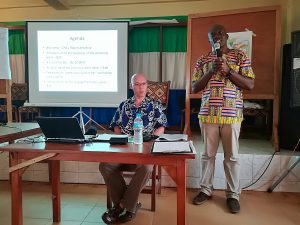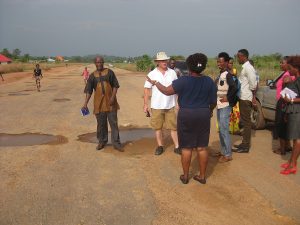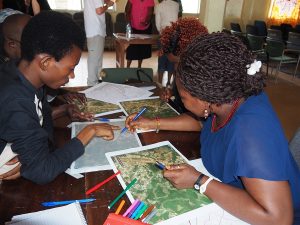Developing a Toolkit for Planners as Bo continues to expand dramatically.
Bo currently has a population of 175,000 people according to the latest 

 2015 census, but experts predict that this will grow dramatically over the next few years to as high as 583,000 by 2045. That’s a growth of over 330% in 30 years!
2015 census, but experts predict that this will grow dramatically over the next few years to as high as 583,000 by 2045. That’s a growth of over 330% in 30 years!
OWL has linked up with Prince Charles’ “Prince’s Foundation for Building Communities” (PFBC) to help develop a toolkit for use by town planners in countries across the developing world in cities, like Bo, facing rapid urban expansion. Although this is likely to eventually be an on-line resource, PFBC was keen to trial the toolkit by delivering the programme in person, and OWL suggested Bo as a pilot city.
Developing a planning framework for Bo as we would understand it in the UK is extremely challenging as there is no effective planning law to control land use. Nonetheless there was real and genuine enthusiasm across both Bo City and Bo District councils to develop a vision for how Bo may grow and think about how this may be achieved.
The workshop took place on 4th and 5th December 2017 and was aimed directly at the two local councils and leading local stakeholders. Three members of UK OWL helped in preparing for the workshop. We were keen to use OWL’s profile in the city as way of encouraging support for the event. The conference facilities at the recently upgraded OWL Centre provided an ideal venue for the event which was attended by almost 50 people over the two days.
At the workshop itself, we discussed a “vision” for Bo, agreed where major growth should (ideally) be directed and began to consider the practical infrastructure and other implications of this. A first priority growth area is the land around the airstrip and close to the campus of Njala University to the south-west of the city, and we undertook a site visit to this area.
The morning of the second day included a stakeholder consultation meeting which 30 people attended. The vision and emerging plans were shared and there was a full and frank exchange of views on how this work could be taken forward.
The workshop was a great success. There was a genuine understanding of the benefits for everyone of working together to agree where and how grow will occur.
It was also great to see OWL fully involved in hosting the event. We have committed to continue to do what we can to support this important work moving forward.

